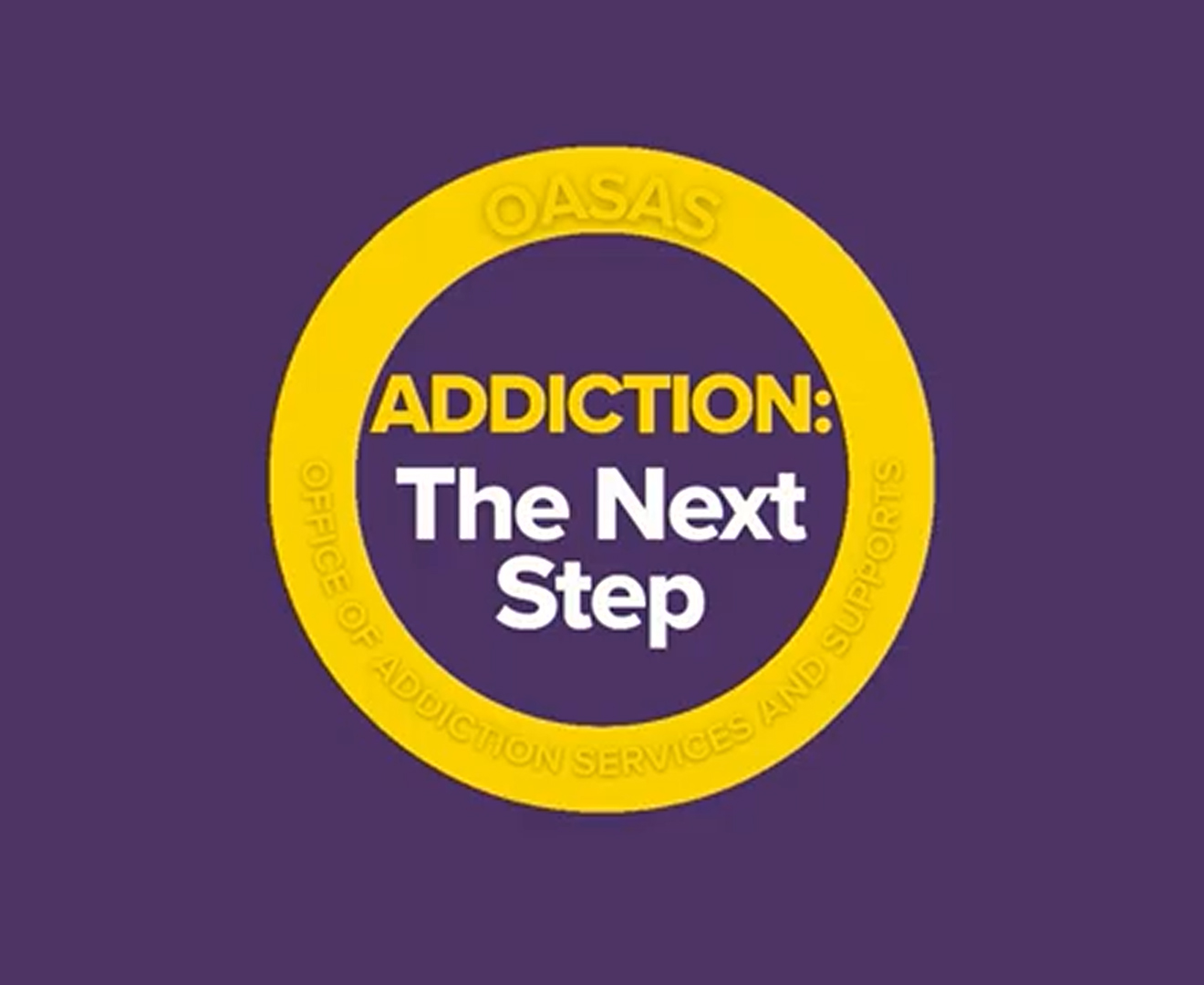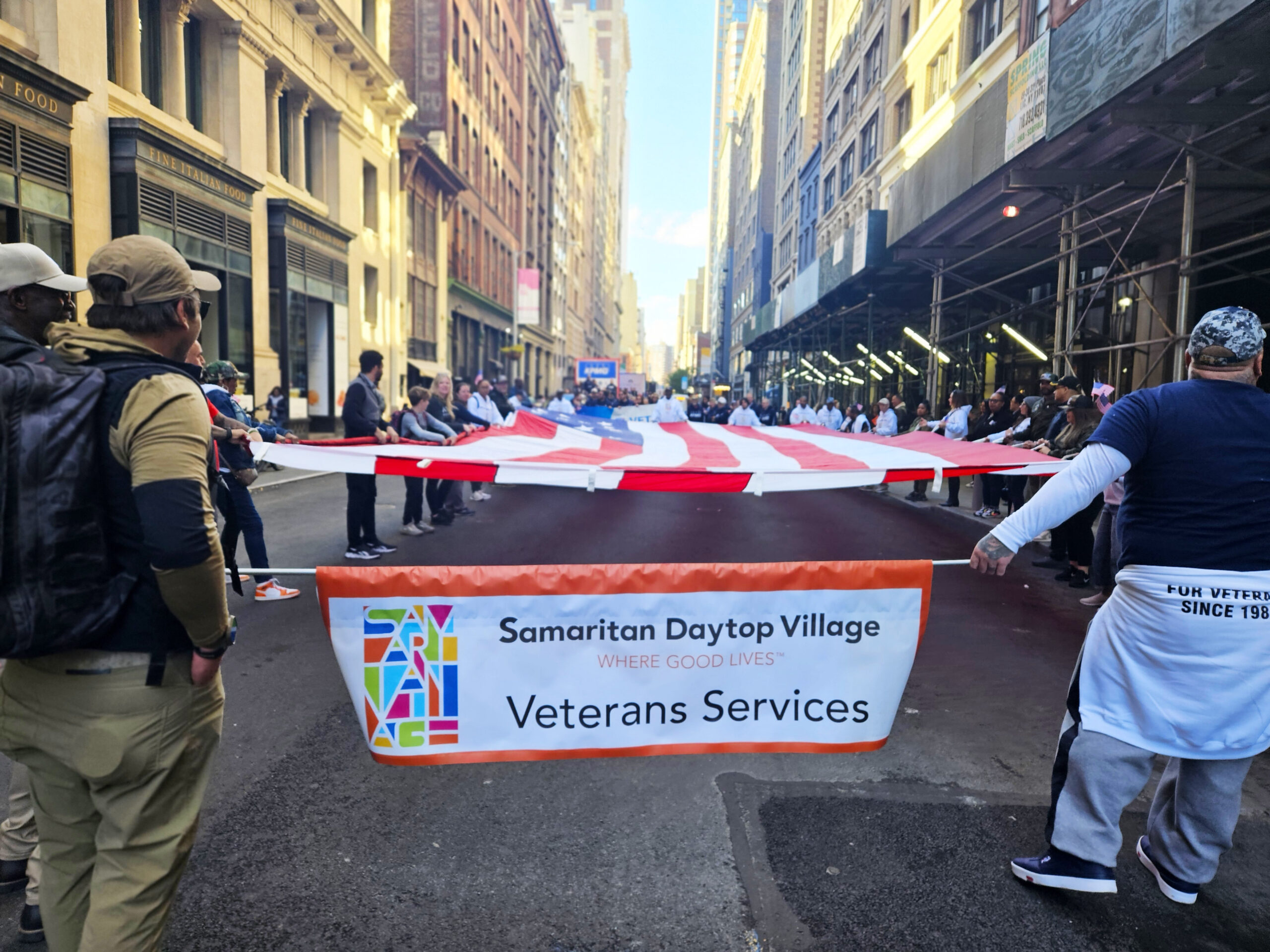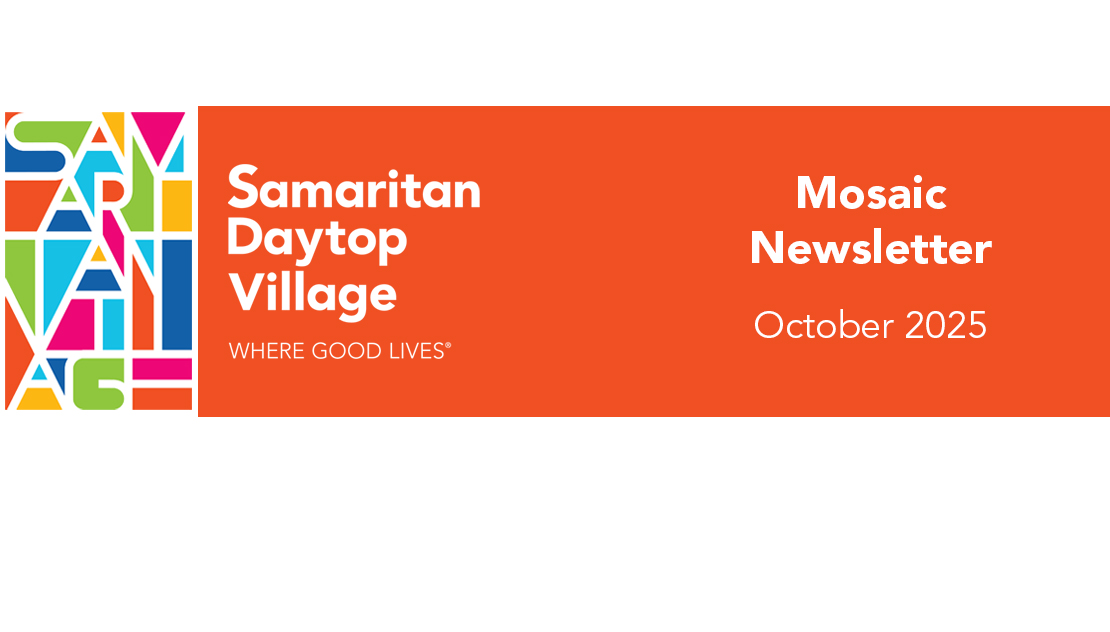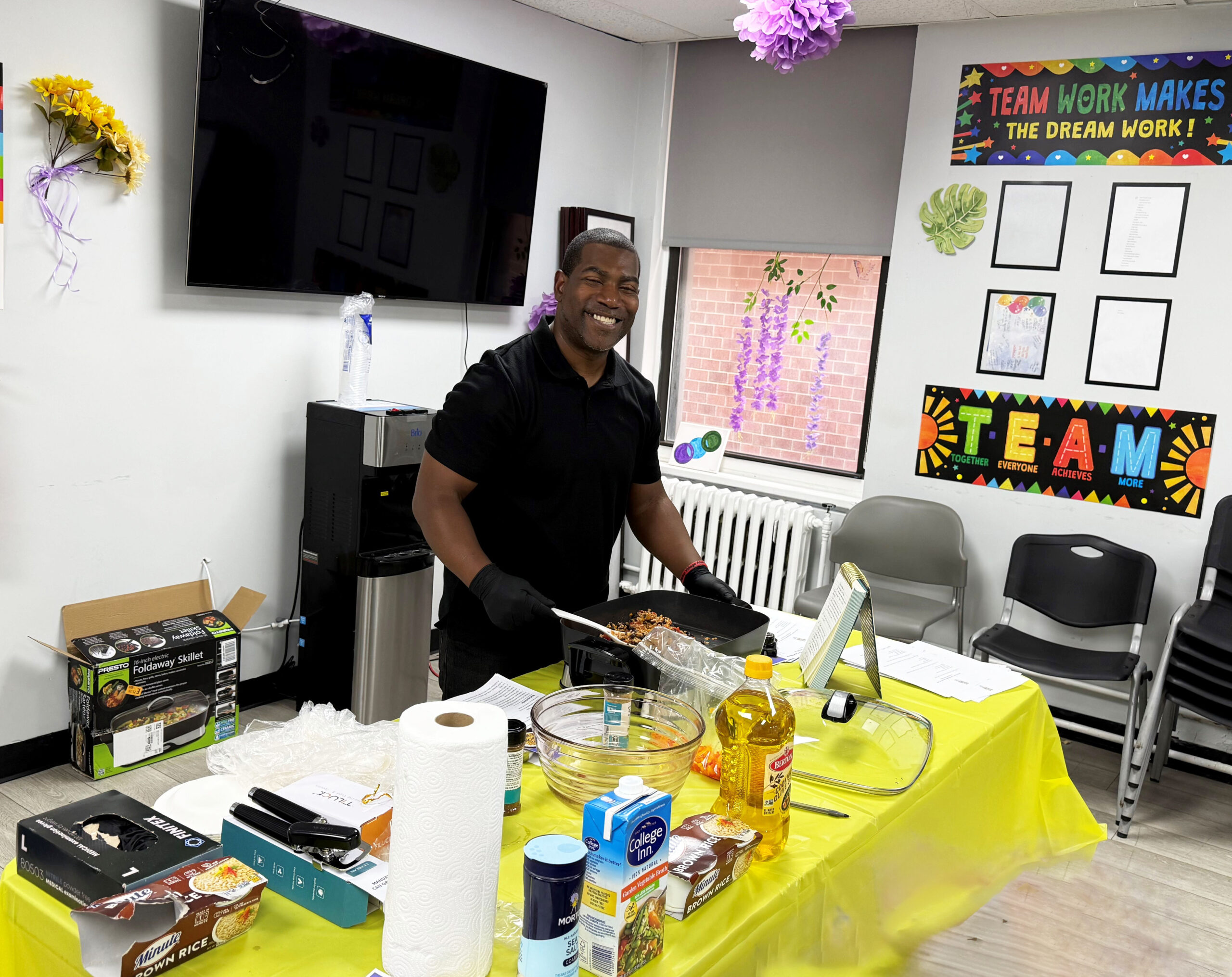Veterans in Focus: Honoring Service, Enabling Recovery

As aired on November 11, 2025 by NYS OASAS “Addiction: The Next Step” podcast
Link to podcast episode.
EPISODE TRANSCRIPT:
The Office of Addiction Services and Supports or OASAS provides this podcast as a public service. Opinions expressed do not necessarily reflect those of the agency or state. This is Addiction the Next Step.
[Music]
JERRY GRETZINGER: Well, hello again. Jerry Gretzinger here, your host of Addiction: The Next Step. And we are coming to you from the offices of the Office of Addiction Services and Supports for the Great New York. Want to thank you for checking out this episode of the podcast today.
And, we’re actually going to be talking about a topic that we’re very happy to be sharing with you because what we’re doing is sharing some
information that is very important for the men and women who have served our country. So we dedicate this episode to them because it is all about helping those folks, the folks who have worn the uniform for our country, who may be dealing with some substance use issues.
So to help us talk about this, we’re bringing in someone who can talk about some comprehensive services that are offered by Samaritan Daytop Village. They’ve been doing this sort of thing, veteran-specific treatment for over 30 years now. And the man who’s sitting here talking to me today is Brian Berry. He’s the Veterans Outreach Counselor for them.
And Brian, thanks so much for taking the time today.
BRIAN BERRY: Thank you for having us.
JERRY: So, you know, I want to talk to you first about veterans’ specific needs. You know, we’ve spent close to a hundred episodes now talking about the services and supports that we make available to New Yorkers in every single community, but obviously when we talk about certain communities, there are certain needs and certain ways that we need to be able to present these services and supports. And I know
veterans are one of those communities. What are some of the special considerations – like why is there an extra challenge when it comes to that group?
BRIAN: Well, that’s a very good question. We here at Samaritan recognize and honor our veterans – those who you know gave their time and their dedication to supporting this country of course but there are challenges during reintegration into greater society for veterans. A lot of trauma, a lot of difficulties, mental health, substance use, housing instability, and these things are challenged, you know, to this specific population. We try to address all that by being a trauma-informed program.
We recognize that the trauma affects why people choose to use substances such as alcohol or maybe drugs and of course that trickles down into housing, employment, family. So, we like to address these things and we have three dedicated facilities specifically for veterans.
JERRY: Yep. So, I mean, we talk about the unique challenges and the unique needs that they have. What do we do? How do you tailor the supports, the services, and certainly the delivery of those to address those special challenges that they may be facing?
BRIAN: The program is tailored specifically for veterans by engaging with the camaraderie. We keep all the veterans together. It’s a structured community, meaning they get up at the same time, everyone’s assigned a job duty. It sort of brings back the military culture
to the client, which is a veteran, to re-engage them in some of the good things that we have in us. You know, I’m an Air Force veteran, and I really got a lot out of the program.
JERRY: So, yeah, go ahead.
BRIAN: No, no, no. After you.
JERRY: All right. No, I was just going to ask, you were saying that you were in the military yourself. Did you see firsthand – yourself or others who were serving – the challenges that they faced with substance use…whatever the substance may have been, and then you know the additional challenge of perhaps getting back to normal life without being in the military after
BRIAN: Absolutely! Just to give you a little bit about me in the military. We’re taught to be resilient. We’re taught that I can do this. But when it comes to substances, alcohol, drugs, you know, a lot of times more is needed. You need the support of maybe a mental health expert, an addiction counselor, other peers who may have been through the type of things, and role models. So, we actually include all those things to incorporate all these structures into the program to be able to better help the clients, the veteran clients.
JERRY: So, you talk about peers and having folks come out of the military. I just think about how and again I never served, and I have great respect for those who did, but from what I know, it seems like it’s a whole other way of life when you’re in the military, right? And if you’re in the military, that way of life, and if during that time you were using some substances at whatever level it may be,
you come out of the military, and everything changes, right? And then…
BRIAN: Absolutely, absolutely. Thanks for recognizing that, because in the military culture, especially with those who are deployed. You’re away from your family. You’re away from your community. You’re away from your spiritual, you know, your church or mosque or what have you. And you’re in a totally different environment. So after that experience, being reintegrated back, it looks different. It looks different. And one thing I got to add… alcohol is a part of military culture. Let’s not get that confused. That’s how we’re in the military. That’s how we celebrate. When we do get leave, that’s what we do. And it sort of becomes a lifestyle. So that when that person leaves the military, he still holds on to those things. We still hold on to those things.
And of course, there’s OASAS. I know you guys know these things spiral and can get out of control, and it’s progressive. It’s a progressive process, which may also lead to loss of job, loss of housing, loss of spousal, children, and these types of things. Then the individual loses him or herself. So, we recognize that again by being trauma-informed. And we promote healthy socialization, of course with evidence-based treatment, seeking safety, thinking for change…various groups, but also the healthy reintegration back into society. Some of the few programs that actually do that.
We go to Jets, Giant games, basketball games, football games, Broadway plays, and a host of other things which I’ll name, but that’s important because I’ll use myself as an example. I went to tons of sports events, and I always had a drink in my hand. And that’s not for everyone. We recognize that those who have these challenges of substance or alcohol abuse… to sort of overcome that and learn to live a new way of life.
JERRY: Yeah. And Brian, you said before, too, and I imagine this is a big part of it, that also part of that military lifestyle is you’re taught to be resilient. You know, I can do this. I’m strong. I can barrel through. Come home. You know, may still be using alcohol like you were saying. It’s still a part of your life. Is there a challenge sometimes for someone who has served, coming home, facing these
challenges, to ask for help?
BRIAN: Absolutely. Absolutely. As veterans, as we both agree, resilience is primary. It’s all about the individual and, you know, we will these things. And once an individual like myself, gets accustomed to using these types of mechanisms to solve problems, it gets ugly. It gets ugly. And like you said, we don’t like to ask for help. We’re silent. We’re prideful. Put your shoulders back, chest out. And that’s sort of the mentality that a lot of veterans are taught and have.
JERRY: Yeah. So, all right. So, somebody’s listening to this, somebody who’s a veteran, and they’re seeing themselves in a position where, all right, well, maybe I’m having a difficult time handling how much alcohol I’m using. What’s their first step? How do you encourage them to move in the direction of kind of getting the support that you make available?
BRIAN: Well, it depends on the individual first. Our programs are always based on what the individual needs or has. Some people come from the court system, you know, they may have legal issues. Some people come from homelessness, some people have homes and jobs and are barely holding on to them, and their job may say, “Hey, you need to do 90 days.” So each pro, each individual is treated accordingly of course.
JERRY: Also mental health I got to add that because of course there’s with co-occurring dependency disorder you know the person may be experiencing PTSD…a number of other mental challenges in addition to substance use, right?
BRIAN: You know, so that’s a dual concept. We like to do a holistic approach, meaning we deal with everything at once. You know, we’ll engage the individual. Hey, what do you need? What’s your experience? Are you indoors? Have you eaten? And then try to bring them in. Our program has helped thousands of individuals, and there’s still a lot of work to be done.
JERRY: Yeah. Talk to me about that. So you said it has helped thousands of individuals. All right. So someone makes that call, they come out, they meet with you, they sign up for the program, and they’re working with you now. So I have some notes here on the program. It talks about helping veterans rediscover unique skills, right? Giving them the compassion and empathetic support that they need, helping them reintegrate into society. Talk about those types of things. So if someone does make that call, they get involved. What can they anticipate… like what’s the path, and I know it can be different for everyone, but generally speaking, the path to wellness and recovery.
BRIAN: Generally, the path will be to come in, speak to me, or some of the other staff at the veterans facility. We do an assessment. Hey, what are you dealing with? There will be of course different screenings, different mental health assessments. Safety is primary. You know, we like to bring them in and have them in a safe environment. So we could find out the type of help that they need. Once they’re in, of course, it goes through phases. Again, these are structured programs. And after 30 days, they’ll be assessed. Hey, what are the types of things that you need? If you need a job, we’ll put you in vocational training. If you need therapy or psychiatry, we partner with various agencies to get mental health. We partner with Damian Care for physical health. You know, I came in and had to get new teeth in my mouth.
You know, it’s ugly out there. So, we try to help at all aspects. I understand the question you’re asking me, but it’s so much in a little bit of time. I would love to just talk about it, especially again, especially the veterans who have been deployed. You know, there’s a lot of trauma and PTSD that they go through this thing. It’s not just that the person drinks too much. It’s a collection of things that have to be addressed.
JERRY: Yeah. So, let me ask you this too then, because someone might be wondering. We try to tell people that recovery is possible, right? Because sometimes people wonder, can I really achieve that? And we say absolutely yes. But if people wonder, what is recovery? What does it mean when we are in recovery? You know, we say we like to tell people it’s not a destination. And it’s sort of like a continuing journey.
BRIAN: Absolutely, absolutely. Recovery is a journey. There’s hundreds of different definitions. I like the one – I believe it’s in Webster – it says recovery is the process of gaining everything back that once was lost. That’s recovery. I’ll give you an example. Family, you know, that’s family first. Of course, re-engaging with family, getting a better career, dreams like going back to school. I got my degree from the program, got connected with the VA, had a grant, and I was able to get my degree and a better job, and am re-engaging with my family. And, for me, the thing is giving back, you know, to be able to help the next veteran or human being to the program. That’s recovery.
JERRY: And Brian, so, we’ve kind of talked around it. We haven’t addressed it directly, but you made a couple references to it. You don’t just work with the program, but from what you’re telling us, you went through the program, you benefited from it yourself.
BRIAN: Absolutely. I am like the Hair Club for men. I’m also a client. Yeah. I went through the Ed Thompson Veterans facility. And I stayed for a year. And again, it’s beyond my wildest dreams what I got from that little bit of time. Helped me to get my life together, helped me to get my family back, helped me to get my career back online, becoming a productive member of society. It’s a beautiful thing. And we also
have the 43rd Street Veterans Program, and a lot of people don’t talk about it. We have the Women’s Veterans Program up in Ellenville.
We had a recovery day yesterday and they gave a great show. I’ll give you the links if anyone’s interested they can see it. They did the color guard. It’s a beautiful thing. Samaritan in itself is a fantastic organization, but I’m here to talk about the Veterans Programs. So
JERRY: Yeah, stick to that. Well, and let me say this, Brian. So we love hearing stories like this, that someone like yourself who went through a program, benefited from the program, and then made it their mission to help others experience similar success. So we applaud you for doing that as well, and it’s definitely the type of story we love sharing.
BRIAN: Thank you very much. Thanks for having me. It’s an honor and a privilege, and hope to see you again.
JERRY: All right. And so, Brian, I was just going to ask quick, if somebody wants to find out more about the programs from Samaritan, I’m assuming they can go on a website, we can share the information here. Is that the best way to go about it?
BRIAN: If someone is interested in coming into Samaritan, yes, they of course they can go on the website, samaritanvillage.org. For the veterans, they can contact me directly. It’s a shameless plug. My number is 929-933822. Brian Berry, I’m the Veterans Outreach Coordinator.
JERRY: Now, I’ll tell you, that’s the first time I think on one of these podcasts, somebody gave out their own number. So, this guy’s serious. He means business. So, Brian, really, thank you so much for sharing all the information and your own number so that people can reach out.
I’m going to share another number. Now, we always want to make sure people know that any time of day, any day of the week, you can reach out and talk to somebody on our line. 877-8HOPENY. There’s always somebody there to talk to you. I’m Jerry Gretzinger, your host. Want to thank Brian Berry again for sitting down and talking to us today. And until we talk to you next time, be well.


